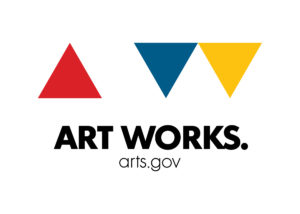By Kathy Dismukes
In March 1979, Ginny Durrin wanted to see a more positive female presence in media and build a stronger sense of self. She decided to invite local women she knew who were working in film for dinner at her house. Nearly a dozen women, hungry for change, gathered at that first meeting of what would become Women in Film & Video DC. Durrin says, “Little did I know that we ignited a mighty spark that night!” She went on to serve as WIFV’s first president and has been a leading advocating for women media makers ever since.
As WIFV celebrates its 40th anniversary this year, I thought readers would enjoy hearing about Durrin’s career her latest project. She began her career as a Peace Corps volunteer, in Bogota, Colombia as an educational television producer-director. Since then she has traveled and filmed in such diverse places as Kurdistan, Iraq, England, Ireland, Japan, and Honduras. While managing Durrin Productions, working to advance women in media, and raising children, Durrin created more than a dozen award-winning, acclaimed media projects, many of which advance powerful social impact themes.
Current Project: Bombs in Our Backyard
On a winter morning in 1993, Durrin and the other residents of the Washington, DC neighborhood known as Spring Valley awoke to the news that construction workers had unearthed World War I munitions in the backyards of two homes. Unbeknownst to residents, the United States Army developed toxic chemicals at nearby Camp American University and tested them in the surrounding countryside during the war. There is no record of where they might have been buried, and after the war ended the land was sold to a developer, who, with some awareness of the problem, built houses on the site that would become Spring Valley. In 2000, Durrin decided to learn the real story about the military’s occupation of her neighborhood, including its subsequent investigation and clean-up efforts. When arsenic—a major component in the weapons and an especially deadly carcinogen—was found in the soil, she began filming residents’ reactions. Many feared that their health could be in danger.
Durrin has been working on the feature-length Bombs in Our Backyard ever since as a one-woman operation. The film raises questions about government culpability and social and environmental responsibility while shedding light on a growing cause for concern: as many as 200 other sites, known as Formerly Used Defense Sites, exist elsewhere in the US. The situation in Spring Valley is hardly unique. On track to become another Durrin classic with enormous impact, Bombs in Our Backyard is the right kind of call to arms for activists, environmentalists, and thoughtful, engaged citizens the world over.
In 2016, Durrin moved to LA to be near her children and four granddaughters, and she’s having a blast with them. The film scene and women’s media organizations are there for her when she wants to jump in. She’s also busy organizing Bombs in Our Backyard footage and other assets for an editor and is doing the fundraising boogie that so many filmmakers still have to do no matter how impressive their body of work is.
Support Bombs in Our Backyard and learn more about the issue:
http://www.bombsinourbackyard.com/
http://www.bombsinourbackyard.com/links.html
https://www.propublica.org/series/bombs-in-our-backyard
Durrin’s Reflections and Hopes
Reflecting on the progress women have made since she co-founded WIFV in 1979, Durrin is most pleased with the stronger sense of self she sees in both emerging and veteran women media makers. “Women go through an internal evolution to build the self confidence that enables them to overcome continuing obstacles. It’s critical to change your inner dialog so you see yourself as truly equal.”
She notes that there is still much work to be done, however, and some obstacles are particularly recalcitrant, especially for women directors. “It’s still too difficult for new mothers to direct projects—there’s just too much competition for their time, focus, and energy. We need better childcare options and other support options for women, and I’m still helping with that.”
Ginny Durrin joins all WIFV members and supporters in celebrating WIFV’s 40th anniversary, and she’s very proud of her role as co-founder. She’s especially gratified by the supportive network that has been a key feature of WIFV since its founding. “We are not simply about creating media and messages. We are not simply about technology or jobs. We are all of these things but more. Throughout its evolution WIFV has and does feel like family, like community. And I believe it is this sense of women’s community that makes us so strong.”
Partial Filmography & Career Highlights (IMDB)
- Promises to Keep
- Academy Award nomination
- Emmy Award
- 9 festival awards, screened at AFI
- Broadcast on PBS, BBC, Swedish, Irish, Swiss TV
- Narrated by Martin Sheen
- Homegrown: Islam in Prison – Part of the PBS series America at a Crossroads
- Poisons and Plagues – Part of Ted Turner’s PBS series Avoiding Armageddon
- Gulliver’s Travels – DISCOVERY/TLC Great Books Series
- Walden – DISCOVERY/TLC Great Books Series
- Daughters of Time – PBS
- Hard Work – PBS
- Worker to Worker – PBS
- Can’t Take No More – PBS
- WIFV co-founder and first president 1979-80
- Women of Vision Winner 1994
- WIFV Advisory Committee 2011-12
- 4 Blue Ribbons in the American Film and Video Festival
- Numerous CINE Golden Eagles
- 3 First Prizes in the National Council on Family Relations Festival
- Seminars – ScriptDC – 12 Steps to Creating the Reality TV Series or Documentary
* * * *
Kathy Dismukes is the founder of Pintail Productions, a Washington, DC area media production enterprise. Pintail Productions helps companies, associations, and nonprofits make strategic, effective use of both traditional video and new formats like 360 and AR. Kathy is also an impact producer and consultant specializing in fundraising, partnership building, and community outreach for films and nonprofits. A Women in Film & Video member since 2007, she served for two terms on the board of directors, including as VP of Development.

















